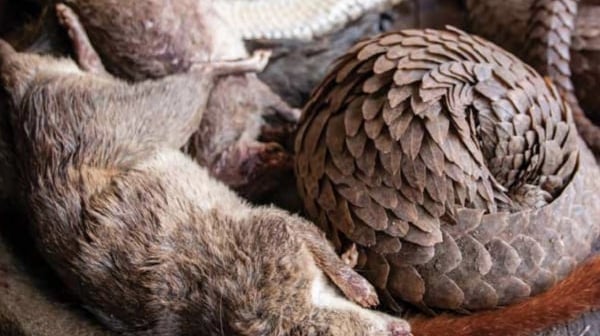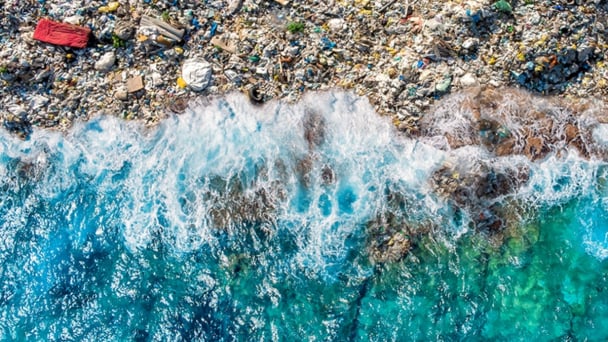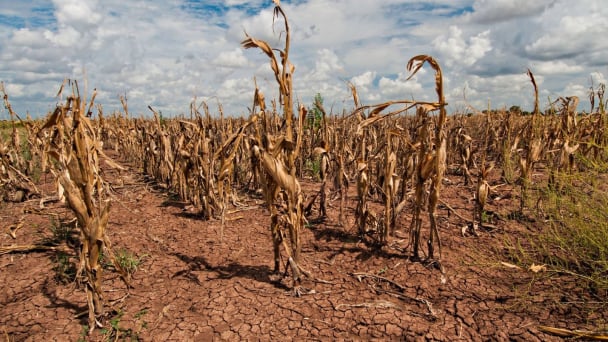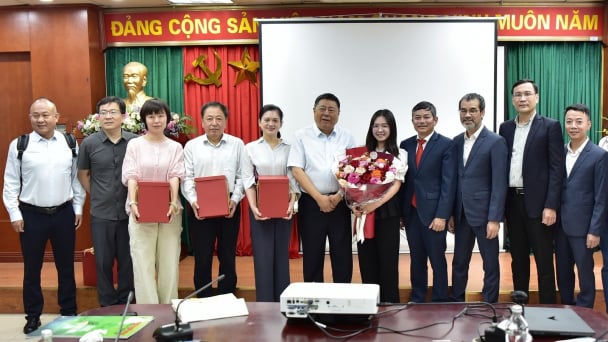May 28, 2025 | 16:17 GMT +7
May 28, 2025 | 16:17 GMT +7
Hotline: 0913.378.918
May 28, 2025 | 16:17 GMT +7
Hotline: 0913.378.918
In animals, immunodeficiency is a widespread condition. Therefore, the protection of pets' health necessitates a thorough understanding of the immune system's function as well as vaccination. While participating in a panel discussion entitled "Decoding Vaccines and Pet Care from the Experts" on the morning of April 4, Associate Professor Dr. Nguyen Tat Toan, Rector of the University of Agriculture and Forestry in Ho Chi Minh City, underscored this point.
The innate immune system serves as the first "barrier" that protects the pet's body, according to the expert. Viruses frequently survive and reproduce inside cells. The presence of this "barrier" on the body's surface aids in the prevention of the entrance of viruses and pathogens.

Associate Professor Dr. Nguyen Tat Toan, Rector of Ho Chi Minh City University of Agriculture and Forestry (second from left) shared at the seminar. Photo: Linh Linh.
However, if this immune barrier is weak, pets can still get sick even after receiving good vaccines. Therefore, although vaccination is crucial, it cannot provide an obvious guarantee that pets will not contract an illness.
Similarly, the immune system of the animal is significantly affected by instances of illness, regardless of whether they are the result of external factors (e.g., stress or a contaminated environment) or internal ones (e.g., corticosteroid exposure during treatment). If the immune system is not functioning properly, the vaccine is unable to completely exert its protective effects.
"Before deciding the vaccination schedule for pets who are taking medications that contain corticosteroids (commonly found in anti-inflammatory drugs), it is crucial to thoroughly evaluate the treatment regimen. Only after discontinuing corticosteroids for a minimum of 2–3 weeks should vaccines be administered. The pet's immune system will have recovered by that time and will be better equipped to respond to the vaccine, thereby ensuring its efficacy," recommended Dr. Nguyen Tat Toan.
Veterinarian Phan Van Tu of the Petmech Veterinary Clinic emphasized that maternal antibodies are essential for the early development of the immune system in dogs and cats, as they are in humans. Mother's first milk, or colostrum, is an essential source of natural antibodies. As puppies nurse shortly after birth, they ingest a substantial quantity of these antibodies—approximately 95% of the total they require—to safeguard against pathogens while their immune system is still developing.

Experts affirm that vaccines are one of the important tools to support disease prevention, especially infectious diseases (diseases caused by viruses). Illustrative photo.
In order to optimize the spread of maternal antibodies, it is crucial for the mother to receive a comprehensive vaccination prior pregnancy. Not only does this promote the mother's health during gestation, but it also enables her body to generate a sufficient quantity of antibodies to transfer to her offspring via colostrum. Within the initial 16 weeks of life, puppies typically finish their vaccination schedule. The mother's recommended vaccination window is approximately one month prior to her estrus cycle (heat), as pregnancy frequently occurs following puberty.
Dr. Vo Van Hai, veterinarian with the 2Vet Veterinary System, also stressed: “Maternal antibodies act like a natural shield that helps puppies fight off pathogens before they are fully vaccinated. During its early life, a puppy's immune system would be exceedingly susceptible in the absence of this protective layer. Therefore, vaccinating the mother before mating is critically important.”
Today, pet owners are more concerned with the health of their pets than in the past, which has resulted in a gradual rise in the vaccination rates of dogs and cats. Furthermore, additional public education and awareness are required to ensure that pet owners realize the significance of vaccinations, particularly in light of the increase of zoonotic diseases (transmissible from animals to humans). According to Nguyen Le Thuy Dung, Business Director of Olmix Asialand Vietnam, this issue necessitates the diligent attention of veterinarians and pet owners.
Most experts agree that vaccines are among the most essential instruments for disease prevention, particularly in the context of infectious diseases caused by viruses.
In response to the belief that bacterial infections demand only antibiotics and not vaccines, Associate Professor Dr. Nguyen Tat Toan underscored the urgent issue of antibiotic resistance, which has emerged as a significant concern in both animal husbandry and veterinary medicine. According to the World Health Organization (WHO), antibiotic resistance could lead to annual death tolls that surpass those caused by cancer by 2050 without timely interventions.
The Rector of the University of Agriculture and Forestry in Ho Chi Minh City, Dr. Nguyen Tat Toan, emphasized that the improper use of antibiotics in the veterinary and livestock sectors can result in antibiotic residues and contribute to resistance. Vaccination is essential not only to safeguard pets from disease but also to mitigate the reliance on antibiotics and prevent the development of resistance.
Associate Professor Dr. Ross Antonio Banayo, Technical Manager for Pet Health at Boehringer Ingelheim Philippines, expressed this concern. He underscored that the objective of administering antibiotics to pets should be to support treatment; however, this must be accomplished in a manner that does not exacerbate the risk of antibiotic resistance.
Translated by Dieu Linh
/2025/05/27/4731-2-223159_980.jpg)
(VAN) No votive paper, no styrofoam, no plastic bags, no plastic bottles, and no single-use plastic trays are the key rules tourists should keep in mind when visiting Con Dao.

(VAN) In the fight against plastic pollution, Vietnam has been demonstrating a proactive, pioneering, and active role in addressing the greatest environmental challenge today.

(VAN) The WOAH guidelines provide a vital tool for risk chain analysis, covering the extraction, transportation, consumption, and handling of confiscated wildlife.

(VAN) World Environment Day 2025 is launched by the United Nations Environment Programme (UNEP) with the theme 'Beat Plastic Pollution'.

(VAN) As climate whiplash reshapes yields, experts say data-driven tools and targeted relief are critical to feed America.

(VAN) The alignment in goals and operational direction between the Vietnam Agriculture and Nature Newspaper and Shaanxi Daily opens up promising prospects for journalism and media cooperation.
/2025/05/26/3422-3-102748_432.jpg)
(VAN) Prime Minister Pham Minh Chinh has been honored as the Distinguished ASEAN Leader at the ASEAN Leadership and Partnership Forum (ALPF) 2025 held in Malaysia, affirming Vietnam’s role and reputation.